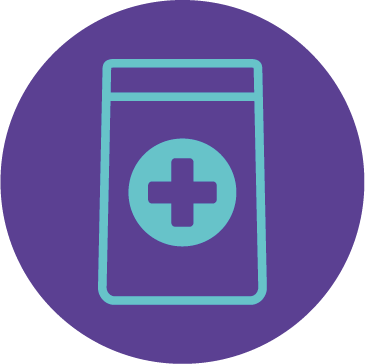We have some sickness related absence in the Patient Care Navigator (Reception) team. In order to safely staff our sites we have closed Park View surgery this afternoon (Tuesday) and Friday afternoon. Patients can use the nearby Tang Hall Lane surgery which is 0.4 miles away.
Latest news
A letter to our patients

I have wanted to write about the feeling of discontent within the NHS, and General Practice in particular, for some time but have struggled to know how to untangle my thoughts. However, recent direct death threats received by our GPs within the last few weeks has made me realise that I can’t stay quiet on the matter any longer. Thank you to BBC Look North and Radio York who both featured this issue on their channels over the last few days.
Here are some examples of the abuse that is frequently directed at our reception and patient central teams:
“Go kill yourself”.
“F*** you”.
“Can’t you just f***ing do it?".
“If they want to f*** my life up, I'll f*** theirs up”.
“If they don't sort this, I'll have someone waiting to grab them on the way to their cars".
“If I die it's your fault”.
“If you do not give me a [nurse appointment], you are a murderer”.
As a result of this abuse, many of our team have reported worsening mental health:
“My mental health has declined since covid and the issue at [surgery site]. I have also become even more anxious within this job since".
“If we cannot give them what they want they just think is ok to just F at us and then when we ask them not to swear, they say they are putting in a complaint, it is the worst I have known it in 5 years”.
“The level of abuse varies, and it’s made me anxious. I am simply not tolerating it anymore”.
Why is this happening daily and why is it getting worse?
The NHS has been in the media constantly with Covid itself, then concentrating on the backlog and then the strikes. I am used to seeing negativity towards General Practice in the media/social media but day to day we usually experience good feedback and gratitude “on the ground” from patients. However, over the last 12-18 months this has changed, and it is now normal to hear a disgruntled patient raising their voice or swearing at our receptionists. Locally, a GP Practice has been set alight. Further afield practices have had their buildings vandalised or covered in graffiti - it is frightening.
I understand our patients and the wider society is frustrated. We are too. We are working under the constraints of a severely underfunded system, but still helping hundreds of patients every day. We want to offer quick urgent care access, continuity of care and timely follow ups to all but the staffing levels and high demand for appointments means this is impossible.
If staff continue to feel threatened and anxious at work, they will leave. This will mean gaps in our reception, patient central call handlers and clinical teams only making it harder for patients to access our care. Yes, we know the patient journey to reaching a diagnosis can feel slow or clunky. We know we aren’t always doing everything right but does that mean we deserve to feel scared doing our job? No.
It isn’t always easy as an individual who is feeling unwell, to understand why we need to prioritise someone else who has more worrying symptoms. To continue to offer a good, robust urgent service for an increasing number of patients, the wait for routine care can get pushed further back.
Routine appointment waiting times in York are longer than practices would like them to be, but without investment, this is unlikely to change in the near future. Our staff cannot safely work beyond their current levels.
Despite transforming many elements of our access system at PMG, creating much needed capacity at the start of the pandemic, these modern digital ways of working are also at full capacity daily.
How can you help us, help you?
Many routine problems can wait 4-6 weeks as the symptoms have been ongoing, but unchanged, for several months, if not years. Some cases triaged by online systems as routine, are due to minor viral illness that have often resolved by the time an appointment is arranged. Clinicians often receive negativity from patients, “What’s the point, I got better after a few days, no point calling me now”.
We would encourage all patients to use the NHS website for advice on minor illnesses or consider speaking to their local pharmacist before contacting us, this allows our clinical team to concentrate their efforts on those who need our help most.
Sometimes our staff have to say "No" and this is often a trigger for abuse. No, we cannot prescribe that drug or send that referral. No, you cannot speak to a GP straight away. No, antibiotics aren’t required. The more abuse we are subject to, the more likely healthcare staff are to leave the NHS. This leaves more gaps, less appointments, and further delays.
The Practice is doing what we can to protect our staff; quickly removing patients from our list who have threatened our staff and involving the police when we receive death threats or experience physical attacks. We are training staff on conflict resolution and trying to improve our pathways and services to reduce frustration amongst our patients.
We are listening to our patients, often seeking feedback, and changing our services because of this. We are talking to our local non-NHS partners, such as Healthwatch, to understand what our communities want and need. We want to move beyond “Patient Participation Groups” and aim to form a meaningful forum where our patients and the practice can collaborate to create a vision for the future of General Practice in York.
I haven’t written this for sympathy or to shock. I have written it to honestly share what is happening in today's healthcare settings. Every day I go to work with the aim of helping my patients, as do receptionists and call handlers. It is a much harder job when I am dreading which patient will phone up or walk in and shout at me or my colleagues. When I worry about calling a patient because I know that I will receive hostility due to the time taken to book the appointment or when I’m worried about declining a request for an unnecessary prescription because I know the patient’s reaction might be extreme.
GP staff in York want to do the best for their patients, we are talking to each other, we are learning, collaborating, and sharing. Please be patient with all our staff members, they really do want to do the best they can without the fear of abuse. Thank you.
Dr Abbie Brooks on behalf of the Priory Medical Group [York] Partnership










